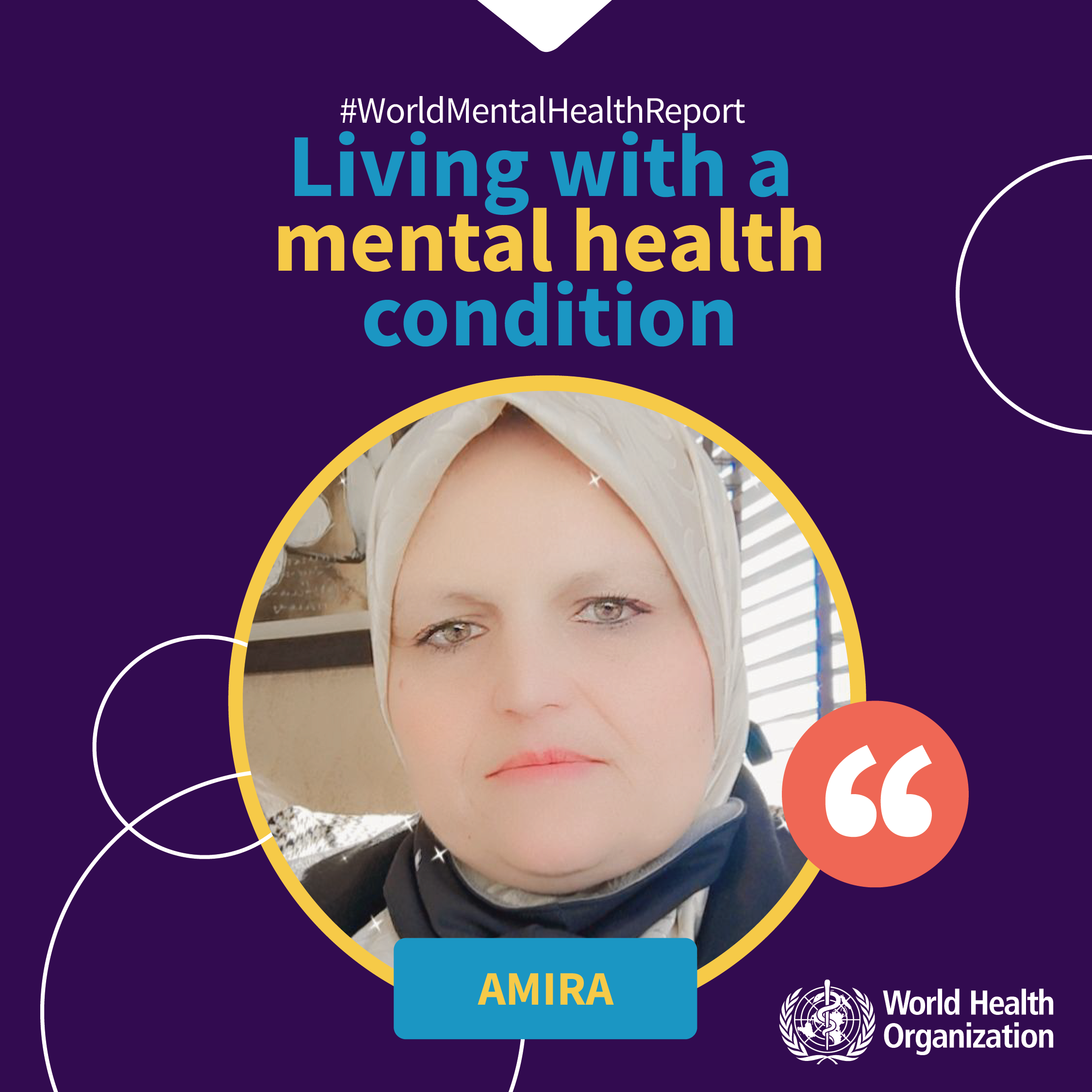
Despite mental health’s critical importance to our health and well-being, too many of us do not get the support we need. In 2019, an estimated one in eight people globally were living with a mental disorder. At the same time, the services, skills and funding available for mental health remain in short supply, and fall far below what is needed, especially in low- and middle-income countries.
Several factors stop people from seeking help for mental health conditions, including poor quality of services, low levels of health literacy in mental health, and stigma and discrimination. In many places, formal mental health services do not exist. Even when they are available, they are often inaccessible or unaffordable. People will often choose to suffer mental distress without relief rather than risk the discrimination and ostracization that comes with accessing mental health services.
High prices and harassment
For Amira Ali Al-Jamal in Jordan, it was a combination of all these factors that prevented her from accessing support. “My experience with postpartum depression was severe and painful. I suffered for a long time and thought the solution might lie in psychotherapy but the term "mental health" was not used much in Jordan,” she says. “I was worried about being stigmatized,” she adds.
Amira decided to visit a private mental health clinic but she wore the niqab, so that no one who knew her would see her. “Here I found another type of suffering,” she says. “High prices and harassment meant I couldn’t afford the care I needed and experienced relapses and setbacks. Eventually I decided to go a government mental health clinic but even here there were violations of human rights. We were all suffering but no one dared to speak. Recovery was slow.”
Integrating care to improve access
For most common conditions, integrated care by primary care staff trained in mental health can be preferable to specialist care because it helps to increase access and reduce stigma. It is also feasible, affordable and cost–effective, including in low- and middle-income countries. And it has been shown to deliver better health outcomes compared with usual primary health care.
“When mental health care was integrated into a local clinic, I was one of the first people to get it,” remembers Amira. “A multi-speciality team gave me psychological treatment and community rehabilitation to support me to become an active member of the community.”
Integrated care by non-specialists, including in primary care, forms the basis for WHO’s mhGAP roll out, which is being implemented to strengthen skills and scale up mental health care for priority conditions all over the world. Studies show this approve improves knowledge, attitudes and confidence among primary care providers; and leads to improved symptoms and engagement with care for people living with mental health conditions. It has also been shown to help reduce the treatment gap and increase effective coverage for priority mental health conditions.
For service users, gaining access to integrated care can be life-changing. Amira remembers how it opened the door to 15 years of advocacy and action for her. “The clinic specialists believed in our abilities and we were invited by WHO to a workshop on human rights. I got to know a group of people with psychological disabilities like me who were stigmatized by society and we decided to establish an association. Our Step supports the rights of people with mental health issues to be included in the community. We have achieved a lot, including helping to produce Jordan's first national mental health strategy in 11 years.”
Integrating mental health into primary care is a key strategy for advancing universal health coverage. Integrated services are also a critical component of the community-based mental health care advocated by WHO as an alternative to the institutional care that dominates so many mental health systems.

